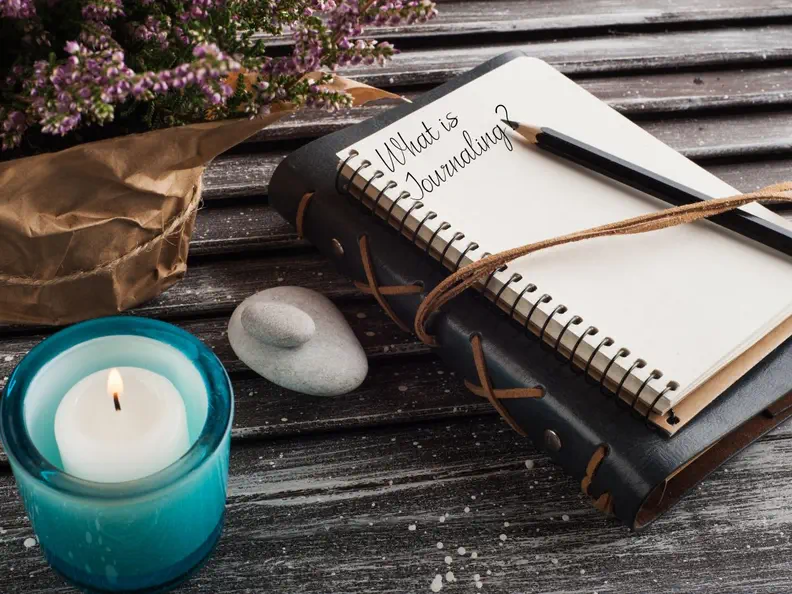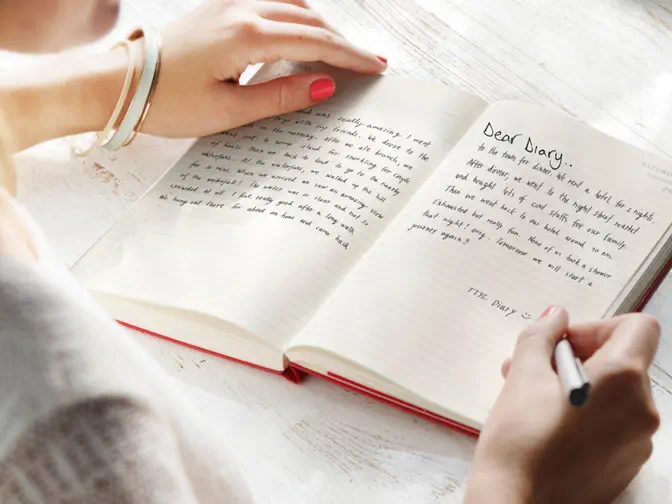There is a lot of buzz around the word journaling these days, and rightly so. We live in a world that consistently urges us to move faster, devouring 10-second reels that nibble away at our attention span.
Journaling invites us to pause and catch our breath. It’s a way to re-ground and centre ourselves amid all this noise and chaos.
Whether you are grieving the loss of a beloved animal companion or a human loved one, perhaps you’re experiencing a period of unrest – maybe you are currently going through anticipatory grief, or simply seeking clarity in a busy mind – journaling provides a safe space for you to explore the goings-on in your inner world. If you’re currently facing the loss of a beloved pet, you might find comfort in this dedicated guide on journaling through pet grief.
So, what is journaling, and how do I actually journal?
What is Journaling?
“Dear Diary, I’m so relieved that I got notice of the promotion today. Wow, what a stressful week it has been while I’ve been waiting. Jonny was not very happy that he was passed over. I think he believes that he should have received it, even though he brings in half the number of clients that I do. I’m looking forward to the celebration dinner tonight at the fancy new pop-up restaurant in Paris.”
This is an example of what journaling is not.
At its heart, journaling is the practice of writing down your thoughts, feelings, experiences and observations freely without judgment. It’s not about perfect grammar or polished sentences, and unlike a traditional diary, it doesn’t have to follow a chronological order.
It’s about truth.
It’s about raw emotion.
It’s chaotically messy and beautiful.
It doesn’t have to make sense, and that’s perfectly okay. It’s meeting you where you are now, and processing life as it is, not as we think it should be.
I like to think of it as emptying your mind of thoughts by letting them flow through your pen and onto the paper: a mental “empty the trash” moment.
Types of Journaling
There are many types of journaling styles, ranging from daily gratitude lists and dream logs to deep, reflective writing, including expressive grief journaling, which is particularly potent when grieving the loss of a pet. Here’s a gentle guide to journaling through pet grief if that’s where your heart is right now.
Some people write a few lines each day, while others pour their hearts and souls out onto the page whenever they need a release.
The key point is that there is no right or wrong way. You can journal however you feel like expressing your thoughts.
How do I start Journaling?
If you have never journaled before or have tried and stopped, no worries! Here are some gentle guiding steps to get you on your way (or to rebegin)
-
- Choose your space & medium: this could be a beautiful leather-bound notebook, a simple blank notebook, Apple Notes or even a Google Docs document. Choose whatever feels most inviting.
- Set aside time: You don’t need an hour; just five to fifteen quiet minutes can make a difference. Try journaling in the morning, when you have the fewest distractions, and you could even habit-stack. Instead of scrolling through your phone while you drink your morning coffee, use that time to journal. Some people prefer to journal at night, releasing all the thoughts and stresses of the day before retiring to bed. Find a time that suits you best. According to Dr Pennebaker’s research, you don’t need to journal every day for it to be beneficial; in fact, three to four times a week is sufficient.
- Begin with a prompt: If you are unsure of what to write, prompts can help.
- Try Today, I am missing….
- Something I wished I told ……
- One thing I am grateful for today is…..
- Write Freely: Don’t censor yourself. There’s no need to fix spelling or make things sound poetic. Forget the grammar rules and tidiness. This is your space to be real.
- Keep it private and sacred: Knowing your journal is for your eyes only can create the freedom to write honestly. You don’t need to share your journal.
The Benefits of Journaling
Journaling isn’t just a habit; it can be a lifeline. Here are some of its research-backed benefits:
- Lower Stress & Anxiety: Studies showed that expressive writing reduces anxiety and improves mood by providing a healthy outlet for release.
- Boosted Mood and Well-being: Positive affect journaling improves mental health, and gratitude journals enhance optimism and sleep quality.
- Emotional Clarity: Writing helps you untangle thoughts and feelings, especially when emotions feel heavy or overwhelming.
- Reduced Depression Symptoms: In young adults and clinical populations, journaling significantly alleviates depressive symptoms
- Physical Health Benefits: Writing about emotions is associated with fewer sick days, lower blood pressure, and even enhanced immune function.
- Grief Support: For those grieving the loss of a loved one (animal or human), journaling can be a space to honour memories, express sorrow and find healing in words. If your loss involves a beloved animal companion, this grief-specific journaling guide offers prompts and support created just for you.
Final Thoughts
Journaling doesn’t require you to be a writer, just someone who’s willing to be honest.
Let your journal be a space of self-kindness.
Let it hold your joy, sorrow, guilt and anger.
Let it carry your questions and dreams.
And if you are navigating grief right now, know this: journaling can become a soft place to land, a gentle bridge between memory and healing. When you’re ready, you can explore Journaling Through Pet Grief, a supportive guide that helps you write your way through the loss of a pet.







